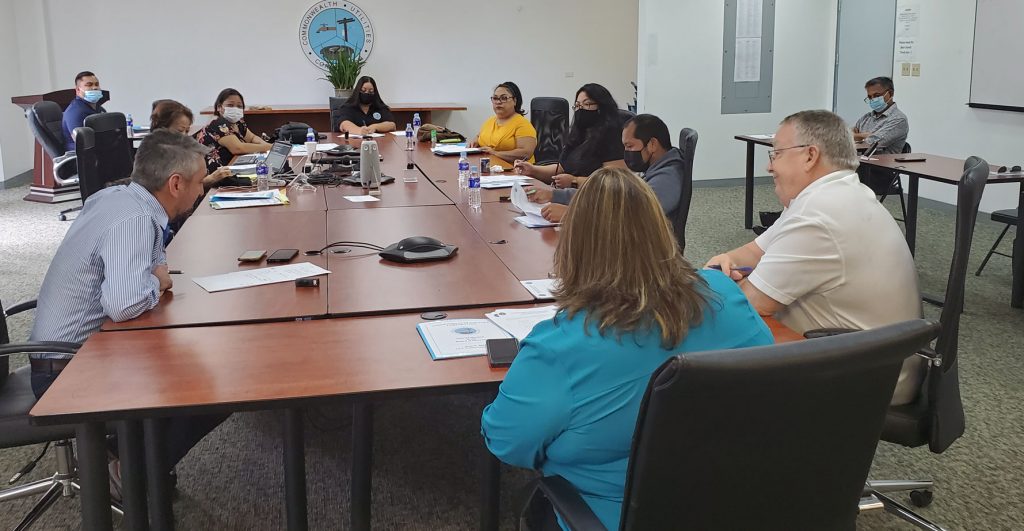‘PSS needs to act quickly on renewable energy’

Board of Education and Public School System counsel Tiberius Mocanu explains their position on the need to pass PSS-Commonwealth Utilities Corp. net metering policy Memorandum of Agreement before the CUC board of directors during the board’s special meeting Wednesday. (FERDIE DE LA TORRE)
The legal counsel of the Board of Education and the Public School System said Wednesday that they need to act quickly on the renewable energy project because solar panels are getting more and more expensive, considering the trillions of dollars of federal funds flowing and the push to get so many jurisdictions on solar power panels.
At the CUC board of directors’ special meeting yesterday, Tiberius Mocanu told the board that in order for PSS get the benefit of the bargain with their vendor for solar panels, they need to act quickly and will need the CUC board’s guidance in order to do that.
“We’re in a little bit of a time crunch since it has been eight months. Our vendor had locked in its prices and, based on those prices, have given us its submittal. Those prices are about to expire,” he said in explaining PSS’ position, just before the CUC board approved the CUC-PSS net metering policy Memorandum of Agreement last Wednesday.
After the CUC board’s approval, assistant attorney general Jose Mafnas Jr., who is the CUC legal counsel, said that PSS will be availing 100% of its net metering benefits.
Education Commissioner Dr. Alfred Ada said their goal is for all public schools to use alternative renewable energy this coming school year and that their target is for PSS to have 100% solar power by then.
During the board meeting’s public comment portion, Mocanu said he is hoping that they could all work together to make this happen.
Mocanu said this process of getting PSS an interconnection agreement to offset a great majority of its electricity use started about eight months ago when PSS submitted its application for an interconnection agreement.
He described the interconnection agreement is a bit more complicated than the standard interconnection agreement because PSS is a large entity and because it would be producing so much power.
“As such, PSS and CUC entered into negotiations to kind of change some of the terms in order that it might also benefit CUC so it wasn’t losing that big of a customer,” he said.























